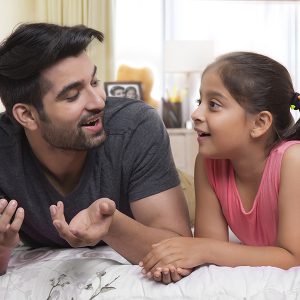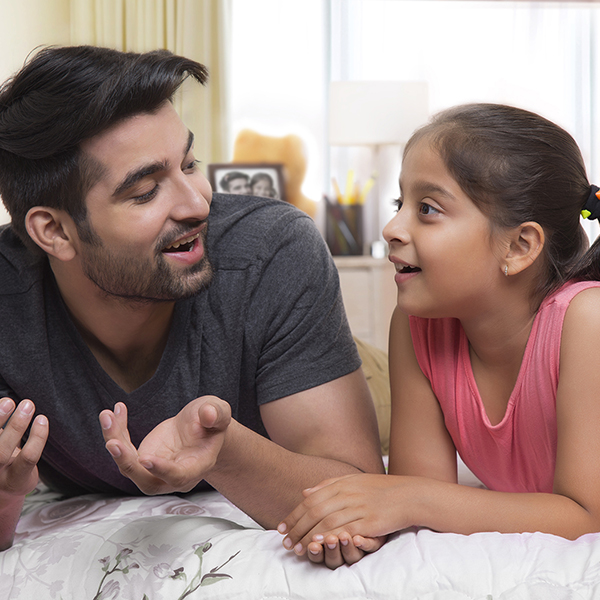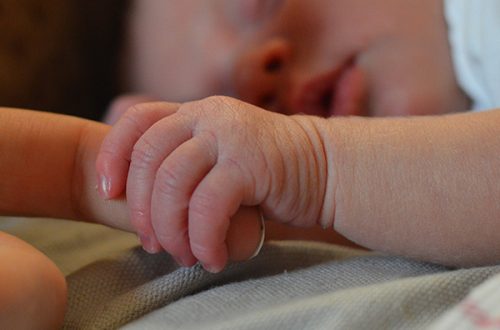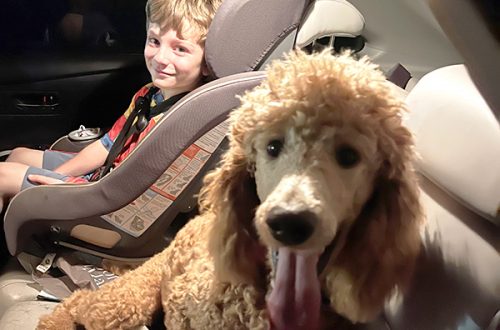What to Tell Kids About Politics and Pandemic?
Contributed

First and foremost, experts agree that parents need to be open with kids about what is happening, while being conscious of what the child is capable of handling emotionally and intellectually.
 The dual stresses of political chaos and a prolonged pandemic challenge all of us. The complexity of guiding children through these difficult times can be overwhelming. But there are simple strategies that can help parents and caregivers help children — and themselves — appropriately discuss and understand current events while being mindful of their feelings.
The dual stresses of political chaos and a prolonged pandemic challenge all of us. The complexity of guiding children through these difficult times can be overwhelming. But there are simple strategies that can help parents and caregivers help children — and themselves — appropriately discuss and understand current events while being mindful of their feelings.
First and foremost, experts agree that parents need to be open with kids about what is happening, while being conscious of what the child is capable of handling emotionally and intellectually.
“Be direct and honest with kids,” explained Nicole Young, Santa Cruz County Triple P — Positive Parenting Program coordinator, though she cautioned parents to “be mindful of what they can handle given their age and developmental level. Take the cue from their kids about how much they want to talk, and what else needs to be said or done.”
One simple strategy is to find out what kids think they know and how they feel about it before launching into a long, adult-level explanation of the situation.
“First ask what your child already knows and understands about the issue before going into a huge explanation,” Dr. Lourdes Barraza, a local Triple P practitioner, clinical psychologist, and parent who has done a lot of work in schools. “When kids are little, simple answers work best.”
Younger Children
She suggested shielding children younger than seven from the news as much as possible. “The less exposure the better because the level of understanding isn’t quite there yet,” Dr. Barraza said.
Older Children
But older kids — especially those who may be consuming media on their own through social channels, gaming platforms, television and other means — could be hearing news that is confusing or scary, and need to discuss it with a trusted adult. Dr. Barraza said the best thing to do is find out what they already know about the subject, ask what they think or feel about it, and answer their questions as best you can.
“It’s also OK to say, ‘I don’t know’ or ‘Let’s find out together,’ if kids ask hard questions. I often remind parents they don’t have to know all the answers,” said Dr. Barraza.
Parents and caregivers need to take care of their own emotional well-being too.
“It’s really important for parents to be aware of and notice their own feelings about these issues — whether it’s fear, anxiety, anger — and do whatever they need to do to take care of themselves, feel the emotions and process them, so that they can be calm and present for their kids,” Young said.
The turmoil in today’s world can manifest in concerning behaviors in kids. Both Dr. Barraza and Young encouraged parents to watch for shifts in behavior. Becoming withdrawn, suddenly having more outbursts, changes in appetite, difficulty sleeping, and losing interest in usual activities can be warning signs.
Children also may repeat or reenact what they see and hear in the media or adult conversations. While there may be a desire to immediately stop aggressive or concerning behaviors, “it’s helpful to pause before responding and remember they are trying to make sense of what’s happening around them,” Young said.
It can also be more subtle.
“Sometimes kids, when they are watching TV or watching videos, and they see something they would normally think is funny but don’t laugh. That could be a sign that something is troubling them, so it’s important to observe our children, so we can be ready to offer support,” Dr. Barraza said.
Remember, kids and parents alike are feeling the fatigue and exhaustion of the pandemic, and wanting to go back to their old activities. Validate that for kids with phrases such as, “It’s hard to believe it’s been this long. We know it’s hard and it may be awhile before we can do the things we’re used to doing,” Young explained. “Then help them identify other things they can do that are safe, healthy, and interesting,” she added.
“It’s OK to be honest instead of setting false hopes for kids. This helps kids learn about realistic expectations and develop coping and problem-solving skills that they’ll use throughout life,” she said.
Young, and the Triple P – Positive Parenting Program, recommend lots of quality time – giving children and teens brief and frequent moments of undivided attention, which reassures them the adults in their lives notice them and care about them. And engaging activities such as walking in nature, reading, exercise and games can help provide a break from the news and screen time.
In Dr. Barraza’s home, her family processes each day together as a way to share their feelings, stay connected and communicate. What started with one question — What was the best thing of the day? — when her kids were younger has grown to include:
- What was the most challenging thing for you today?
- What are you grateful for today?
- What are you going to do tomorrow to have a better day?
“There’s so much we can’t control,” Young said. “It helps to focus on just the basics — quality time, attention, affection, [and] spending time with kids.”
To learn more about Triple – Positive Parenting Program, visit:
first5scc.org/families-are-strong/triple-p.








